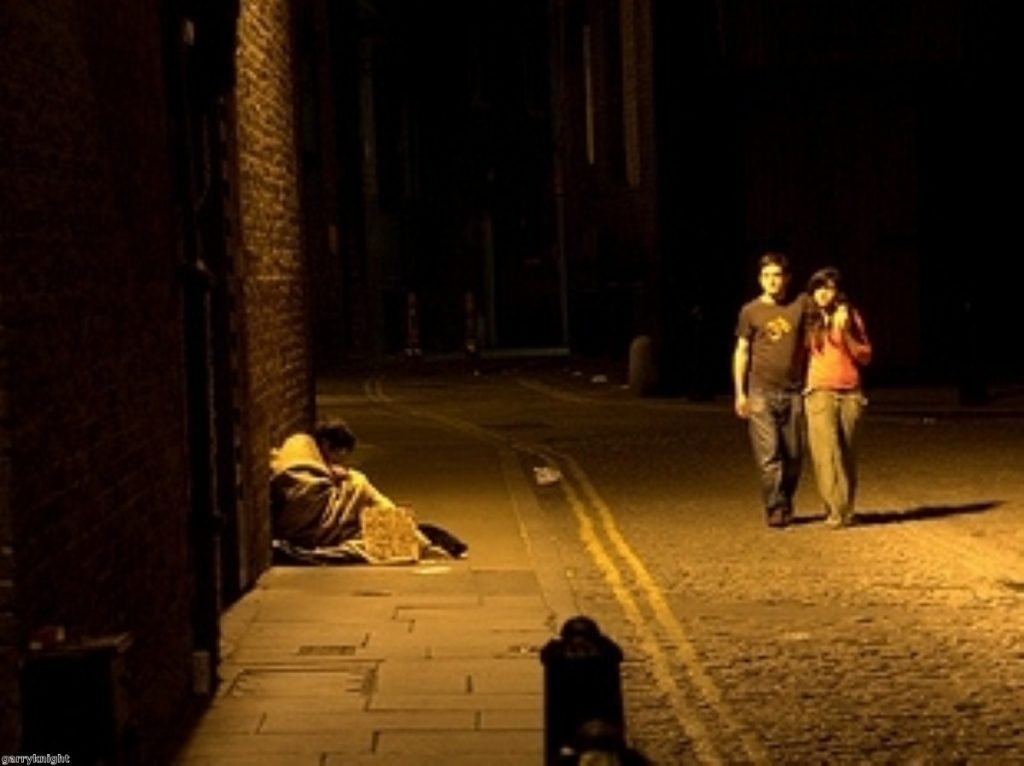The test to prove you’re gay: Report reveals cruel trap of British asylum system
The strange limbo of the British asylum system has been laid open by a Commons committee report today, with reports of claimants waiting for a decision for up to 16 years and having to provide sexual photographs of themselves to prove they are gay.
The home affairs committee report also raised concerns about the appalling quality of housing provided to asylum seekers by private contractors like Serco and G4S.
"The asylum system is overburdened and under severe pressure," committee chair Keith Vaz said.
"The system needs to work, otherwise applicants are trapped in a cycle of helplessness and vulnerability."
The committee expressed concern that gay and lesbian applicants fleeing persecution in their home country were too often judged on the basis of anecdotal evidence to find out if they were telling the truth.
Some claimants were forced to provide photographic or video evidence of "highly personal sexual activity" to caseworkers.
MPs also reported that pregnant women were repeatedly moved around the country to satisfy bureaucratic requirements.
It also raised the alarm over "sub-standard" housing provided to asylum seekers by private firms.
"These companies must be held accountable and deliver a satisfactory level of service," Vaz said.
"It is unacceptable that in 21st century Britain thousands of people are forced into destitution due to the inefficiencies of the system."
The report said the UN High Commissioner for Refugees (UNHCR) had raised concerns about the UK asylum process, saying it was failing to apply appropriate methodologies to assess the credibility of applicants.
"The findings of this report reflect the grave concerns about the asylum system in the UK that we and many others have been highlighting for years," Maurice Wren, chief executive of the Refugee Council, said.
"Failing to treat asylum seekers with dignity and, simultaneously, failing to deal effectively and fairly with their claims has created an expensive and counter-productive bureaucratic nightmare that all too often denies vulnerable people the protection from persecution and oppression they desperately need."
There was evidence that far from improving, the backlog of asylum claims was actually getting worse.
Some 32,600 claims which were supposed to be resolved in 2011 are still pending, leaving the applicants in a legal limbo where they are not allowed to work or claim benefits.
Some applicants have been waiting for a result for 16 years.
The number of applicants waiting for an initial decision after six months – a new benchmark set by the government – actually rose by 63% last year.
There was also concern about the quality of the decisions made, with 30% of appeals succeeding in 2012.
Vaz raised the prospect of war criminals and terrorists finding their way into Britain by using the asylum process and then becoming lost in the system.
"Those who apply for asylum should be checked against national and international law enforcement agency and security databases to ensure that we are not harbouring those who intend us harm," Vaz said.
"The home secretary has to assure us that any anomalies in the process, which have allowed decisions such as this to take place, are addressed immediately."
Jonathan Ellis, head of policy at the British Red Cross, said: "The levels of support for refugees are still not enough to meet their basic human needs.
"We see many vulnerable people suffering in appalling conditions because they simply do not have enough to survive on as they battle through the asylum process – homelessness and hunger are the very real results of a system that is broken."
A Home Office spokesman said: "The UK has a proud history of granting asylum to those who need it. We are committed to concluding all cases as quickly as possible, but asylum cases are often complex and require full and thorough consideration.
"We have robust mechanisms in place to monitor standards of housing provided to asylum seekers.
"Following the awarding of Compass contracts, the Home Office and its providers carried out an inspection of accommodation standards and where necessary took action to ensure they met the necessary standards.
"Overall the performance of all three providers has shown steady improvement since January and G4S and Serco have made significant investment in their property portfolio. We will continue to monitor performance to ensure that standards are met."





-01.png)